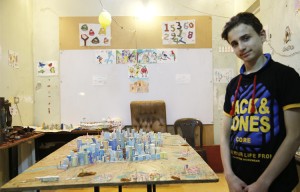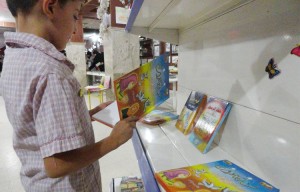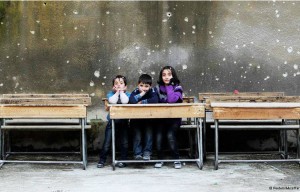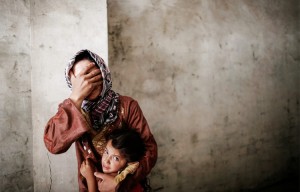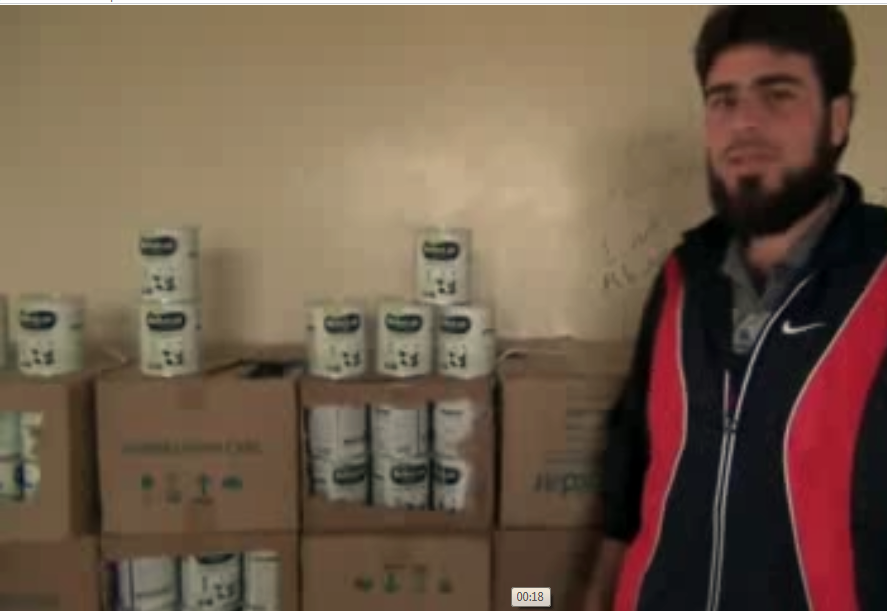
Lack of Milk Threatens Children in ‘Liberated’ Areas

Enab Baladi Issue # 92 – Sun, Nov. 24, 2013
While the only thing left of childhood is its name, the problem of babies’ milk adds yet another chapter to the story of suffering and anguish the people of rural Hama are living.
Babies’ milk is one of the products that were affected by the circumstances of the Syrian Revolution. Due to the lengthening of the revolution, and despite the need for it in every family, the danger of milk shortages has become a threat to the well being of a significant proportion of infants in the liberated areas.
Since the revolutionaries began liberating rural Hama two years ago babies’ milk has no longer been available in the villages and towns. The families are relying on relief agencies and charities to supply it; or buying smuggled milk from the areas controlled by the Regime – the cost being multiplied manifold whereby the container that was sold for 700 to 900 Liras in Assad controlled areas costs 1100-1600 Liras by the time it reaches the areas controlled by the FSA.
Ameer Hamwi from the Local Coordination Committee of Kaferzita speaks to Enab Baladi: “Since the liberation of the town there has been no supply of Babies’ milk. Charitable organizations distribute a container of milk to each child each week but intermittently,” pointing out that there are around 1300 infants in need of milk in the town.
Ameer adds that the situation in Kaferzita is the same in Latamna, Helfaya, Taybat Al Imam and all the other towns and villages in rural Hama. The town of Karnaz however, in the north, is the worst off as the blockade imposed upon it by the Assad checkpoints prevents charities from reaching the town which has led to a near complete absence of milk.
Dr. Abu Nawaf, the director of The Syrian Child Office speaks to Enab Baladi about the studies carried out by the organization regarding the impacts of insufficient milk, which is the main nutrition for infants from birth to two years, and the findings were: weight loss, poor growth, in addition to the spread of Rickets on a dangerous level. These are considered to be the symptoms of malnutrition on various levels.
The Doctor explains that the nutrition of infants is a very sensitive process whereby changing the type of nutrition more than once in a short period has adverse effects, leading to intestinal illnesses as an infant’s digestive system is very sensitive. This seriously affects the mucous layer and serum in the intestines which leads to a low rate of absorption of nutrients – as low as only 35% of the normal rate of absorption.
The team carrying out the studies also noticed the presence of many different types of babies’ milk products, some of which had passed its expiry date and others not nutritionally suitable, especially in outdoor refugee camps. Furthermore the phenomenon of unknown sources has arisen whereby many of these products have adverse effects which accumulate and only become apparent during the stage of puberty.
The unbalanced mix and the lack of essential vitamins, supplements, amino acids and mineral elements are basic features of these products that are given to our children without trusted supervision or accountability and impunity and without meeting the necessary health standards.
As a solution to this exacerbating problem The Syrian Child Office has set up a factory for producing babies’ milk – one of the greatest relief projects in Syria. The specialized teams in the organization have started putting the final touches to the project which will be launched soon according to Dr. Nawaf, who confirmed that the factory had produced small quantities of milk and tested it on a sample of 100 infants with fantastic and promising results.
Finally Dr. Nawaf says: “We hope the factory will be able to supply all the liberated areas and hence put a smile on the faces of all Syrian children”.
Translated by: Tasneem Al-zeer
اذا كنت تعتقد/تعتقدين أن المقال يحوي معلومات خاطئة أو لديك تفاصيل إضافية أرسل/أرسلي تصحيحًا
إذا كنت تعتقد/تعتقدين أن المقال ينتهك أيًا من المبادئ الأخلاقية أو المعايير المهنية قدم/قدمي شكوى
-
تابعنا على :




